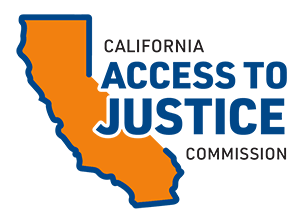Strategic Plan Report For 2023-2025
The California Access to Justice Commission engaged in a Strategic Planning process that has generated its Strategic Plan for 2023 – 2025.
Equal access to justice can be denied because barriers exist – economic, language, geographic, and immigration status barriers, among others. Resources to provide legal help to Californians without the means to pay are insufficient – the “Service Gap.” Also insufficient is the public’s understanding that many problems and opportunities require or benefit from legal help – the “Knowledge Gap.” “[T]he California Justice Gap is widespread, pervasive, and multifaceted.”[1] And so is the Access Commission’s work.
The Plan identifies four subject matter areas in which we will work, and priorities within those areas:
Access to Courts:
Access to the Record in Court: The record of court proceedings must be made available to all
E-Justice: Leveraging technology in ways that enhance access and avoid creating new barriers
Support for Court Self-Help Centers
Support implementation of the Language Access Plan
Access to Lawyers:
Continue the Innovation and Infrastructure Grants Program
Support and expand Loan Repayment Assistance Programs for legal aid lawyers.
Support adequate funding for California legal aid organizations
Support a California Legal Aid Roundtable (LAIR)
Access to Other Forms of Help
Expand the capacity of County Law Libraries to help unrepresented people, including support for adequate funding
Narrowing the Knowledge Gap.
Complete and evaluate a social media messaging project for people who do not know their legal rights to healthcare access.
–
[1] The State Bar of California, California Justice Gap Study, Executive Report (2019), available here.

